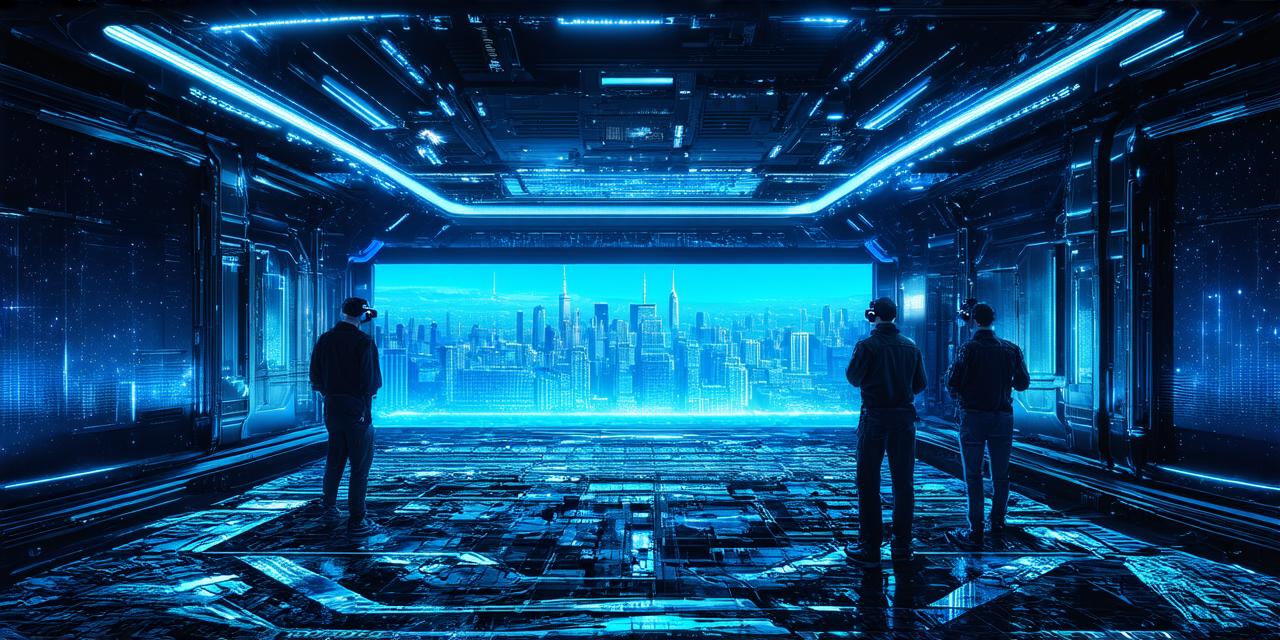
Movie showcasing virtual reality

Virtual reality (VR) technology has been rapidly evolving in recent years, and it’s not just limited to gaming. In fact, VR is also revolutionizing the entertainment industry, particularly in the realm of movies. By providing a fully immersive experience that allows viewers to feel like they are part of the story, VR movies have the potential to change the way we experience film forever.
One of the key advantages of using VR technology in movies is the ability to create incredibly realistic environments and visuals. With 360-degree cameras and advanced CGI effects, VR movies can transport viewers into fantastical worlds that were previously impossible to create on screen. This technology also allows for greater flexibility in storytelling, as filmmakers can experiment with different perspectives and narratives without the limitations of traditional filmmaking techniques.
One example of this is the 2016 VR movie “Job Simulator,” which was created by Oculus VR. The film follows a person as they go through a series of jobs, from being a receptionist to a chef. The immersive experience allows viewers to feel like they are actually performing these tasks, and it has been praised for its innovative storytelling and use of VR technology.
Another example is the 2017 film “Pearl,” which was directed by Patrick Witek and created in collaboration with Google Daydream. The movie tells the story of a father and daughter who embark on a road trip across America, only to be confronted by a sinister force that threatens their survival. The VR experience allows viewers to feel like they are actually riding in the car with the characters, making for a more visceral and immersive experience than traditional movies.
In addition to providing a more immersive experience, VR movies also offer a unique way to engage with viewers on a deeper level. By placing the viewer directly into the story, VR movies can create a sense of empathy and emotional connection that is not possible in traditional movies. This has the potential to make for more emotionally powerful and impactful experiences, as well as creating new opportunities for storytelling and audience interaction.
For example, the 2018 VR film “A Christmas Carol” was created by the BBC and allows viewers to step into the world of Dickens’ classic holiday tale. By experiencing the story from Scrooge’s perspective, viewers can gain a deeper understanding of his motivations and feelings, making for a more meaningful and memorable experience than traditional adaptations.
While VR movies are still in their early stages, they have already shown great promise in terms of engaging audiences and pushing the boundaries of what is possible in film. As technology continues to evolve, we can expect even more innovative and immersive experiences in the future.
Of course, as with any new technology, there are also challenges that need to be addressed. One of the biggest challenges is the cost of VR equipment, which can be prohibitive for many people. In addition, there is a risk that VR movies could become isolated from traditional audiences, creating a divide between those who have access to this technology and those who don’t.
Despite these challenges, the potential benefits of VR movies are too great to ignore. By providing a more immersive and emotionally powerful experience, VR movies have the potential to revolutionize the entertainment industry and create new opportunities for storytelling and audience engagement. As virtual reality continues to evolve, it will be exciting to see how filmmakers push the boundaries of this technology and what kind of experiences they create in the future.
FAQs:
* What is virtual reality (VR) in movies?
Virtual reality is a technology that allows viewers to experience immersive environments and visuals through 360-degree cameras and advanced CGI effects.
* What are some examples of VR movies?
Job Simulator, created by Oculus VR, and Pearl, directed by Patrick Witek and created in collaboration with Google Daydream, are both examples of VR movies.
* What are the benefits of VR movies?
VR movies provide a more immersive and emotionally powerful experience, allowing viewers to feel like they are part of the story. They offer a unique way to engage with viewers on a deeper level, creating a sense of empathy and emotional connection that is not possible in traditional movies.
* What are the challenges of VR movies?
The cost of VR equipment can be prohibitive for many people. There is also a risk that VR movies could become isolated from traditional audiences, creating a divide between those who have access to this technology and those who don’t.


